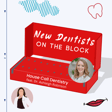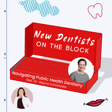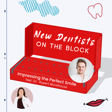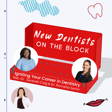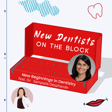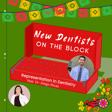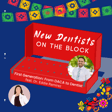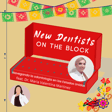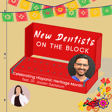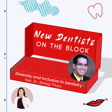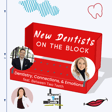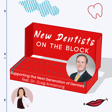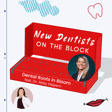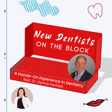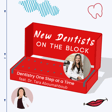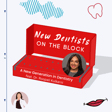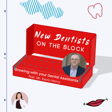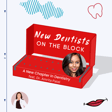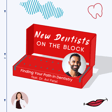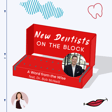
Navigating Dentistry in the United States w/ Dr. Maria Valentina Martinez
Dra. Valentina Martinez, a dentist and orthodontist from Venezuela, shares her journey of obtaining her dental license in the United States. After meeting a mentor who was looking to retire and sell his practice in New Mexico, Valentina decided to move to the U.S. and pursue her dental career there. She faced many challenges and uncertainties along the way but was determined to make her dream a reality. Valentina wrote a book about her experience and started the INBDE course to help other Spanish-speaking dentists navigate the process of obtaining their dental license in the U.S. She emphasizes the importance of never giving up on your dreams and believing in yourself.
Valentina and I are both members of the beautiful Simpaticas group in El Paso, Texas
About The Guest:Dr. Maria Valentina Martinez Morales has a proven record of accomplishment and years of experience as a practicing orthodontist. She received her dental education at Carabobo University (Venezuela on 2006), and her specialty degree in 2010, after that she did her advanced standing program in Boston University on 2020 ; In addition, she has a PhD in Dental Sciences (Caribbean International University). She is a member of the American Association of Orthodontics (AAO), the World Federation of Orthodontics (WFO), Venezuelan Orthodontics Association and the Latin American Orthodontics Association (ALADO). She was a Faculty member in Carabobo University (Venezuela) for more than 9 years, International Speaker of the Clear Aligner Techniques for 8 years. She has been dedicating her life to the Orthodontics Treatment research, publishing her research results in several magazines and the annual meeting of the AAO (American Association of Orthodontics). She wrote a book in spanish for helping international dentists to achieve their dreams of getting a dental license in the United States. Dr. Martinez is also the creator and CEO of the company Become dentist USA that teaches lectures in preparation for the dental boards and applications for the different dental programs in the US. With more than 600 students enrolled nowadays.
Key Takeaways:
- Valentina Martinez moved from Venezuela to the United States to pursue her dental career.
- She faced many challenges and uncertainties during the process of obtaining her dental license in the U.S.
- Valentina wrote a book and started the INBDE course to help other Spanish-speaking dentists navigate the process.
- She emphasizes the importance of never giving up on your dreams and believing in yourself.
Learn more about becoming a dentist in the United States: https://becomedentistusa.com/
Check out Dr. Valentina Martinez Book HERE
Connect with Valentina Martinez on IG: @dra.maria_valentinamartinez
Connect with New Dentists on the Block: @newdentistsontheblock
Connect with Tanya Sue Maestas: @tsmaestas.dds
Full video on Youtube
